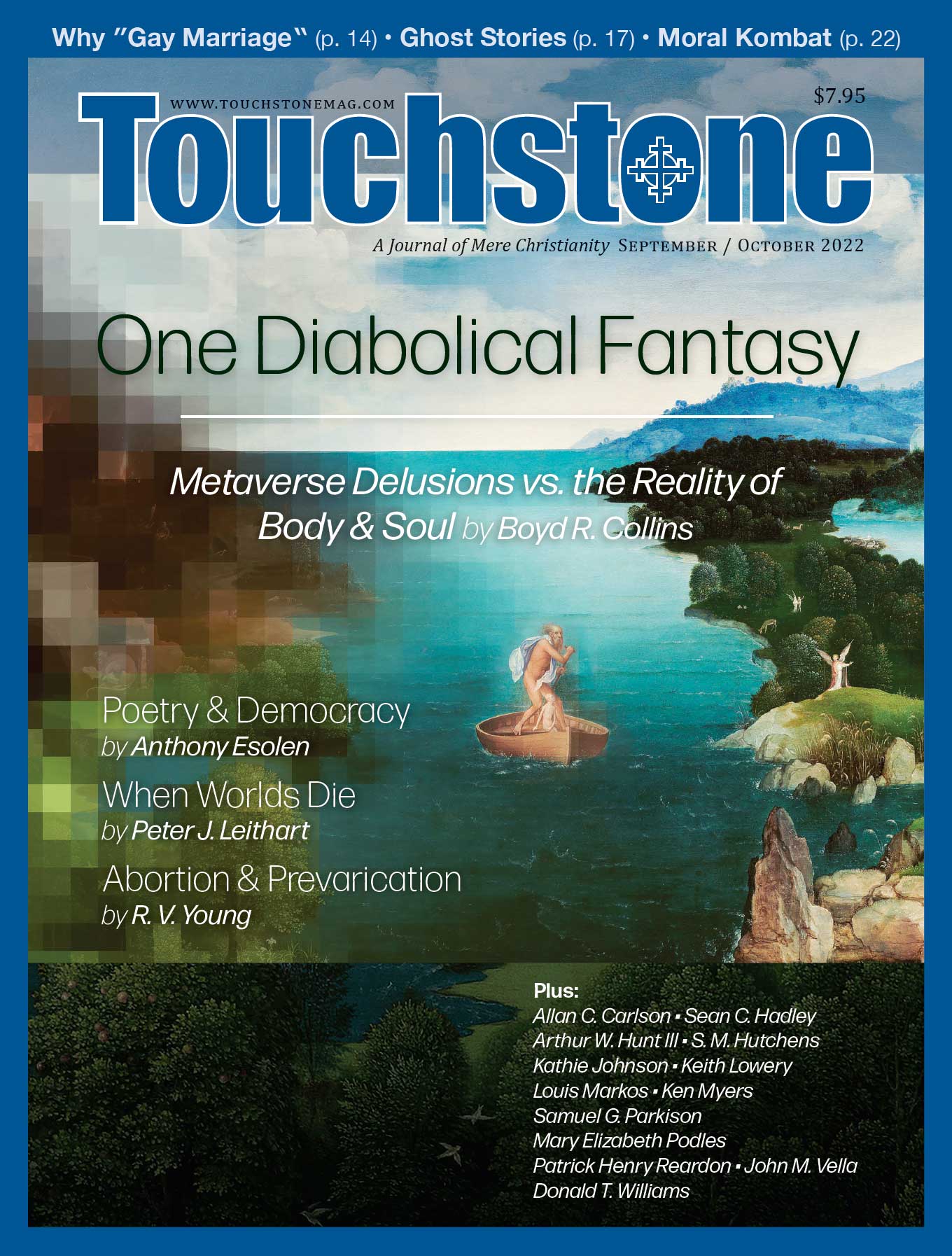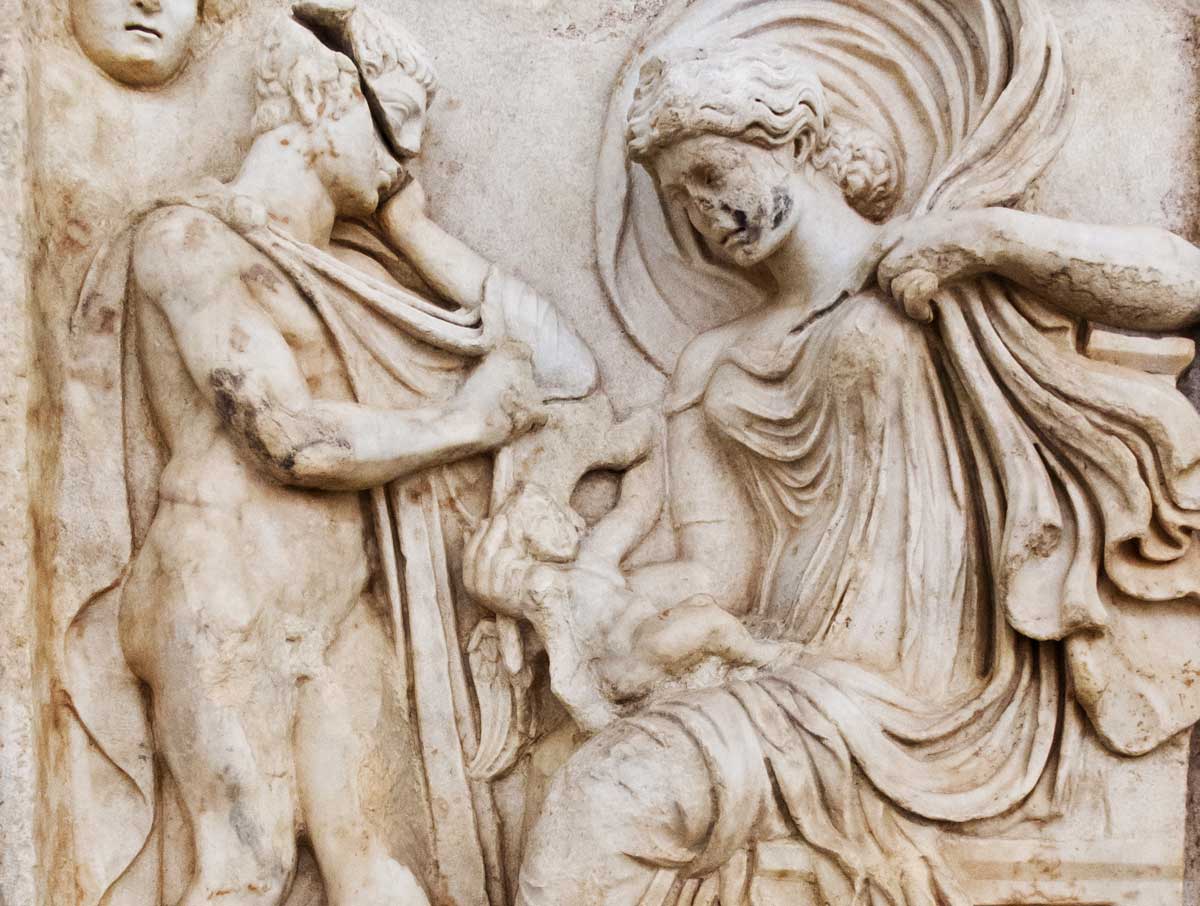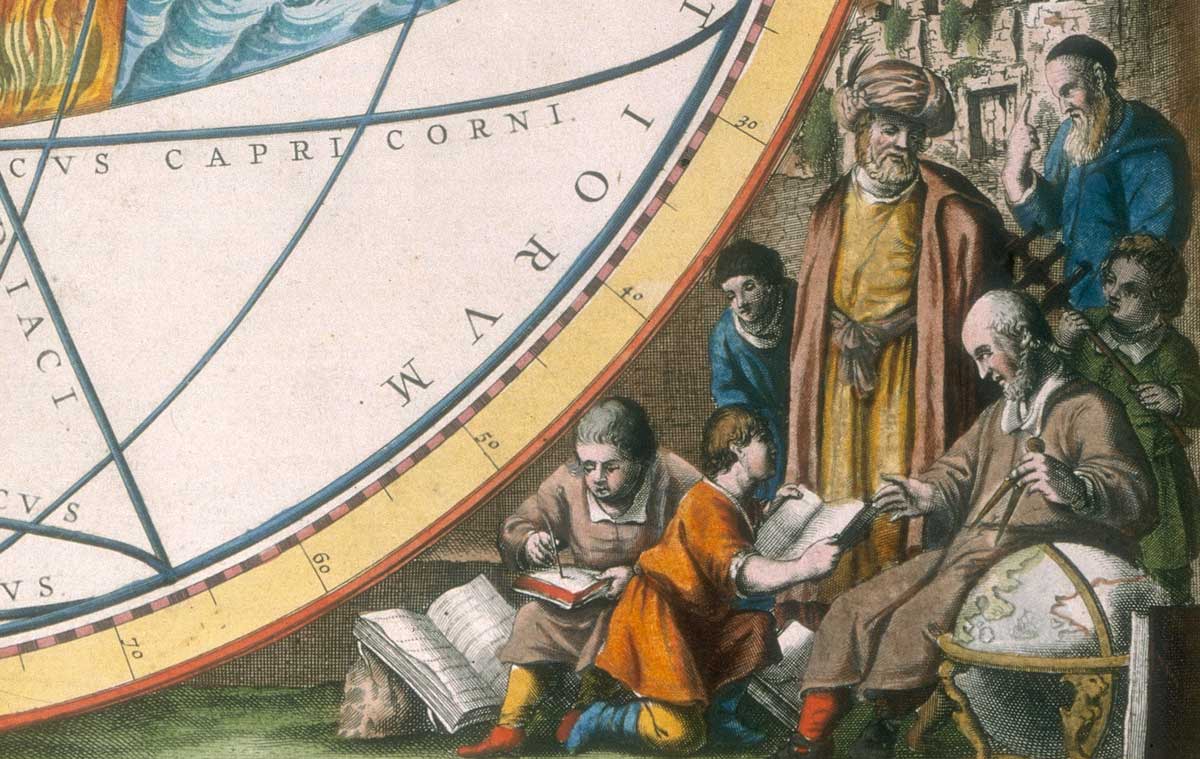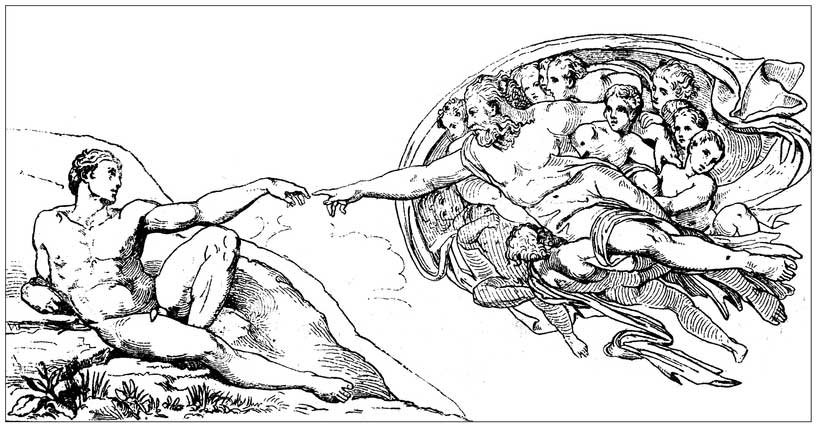Not Fit for Print
Prevarications About Abortion in the Highest Places
The New York Times is typical of secular progressive media outlets in routinely accusing Donald Trump and various other “right-wing extremists” of “pushing a false narrative” and simply lying. While it is undeniable that Mr. Trump and some of his more zealous supporters are hardly paragons of veracity, the Times likewise fails to meet the standard of reliable truthfulness. The principal difference is that the Times is adept at manipulating its readers’ perception of a contested issue in more subtle and elusive ways.
Mr. Trump, for instance, is not above asserting as facts propositions of which the falsity may be easily ascertained. The Times, however, usually offers any number of true statements, but with so many tactical omissions of relevant details and a general distortion of the overall context that the effect is as misleading as a direct lie and even more insidious, because the falsehood is more difficult to detect. Perhaps the best term for this is prevarication, which, in the pertinent sense, is defined as, “To deviate from straightforwardness; to speak or act in an evasive way; to quibble, equivocate.” Although the nation’s “newspaper of record” has prevaricated about a myriad of subjects in the interest of extreme, secular progressivism, it has done so inveterately and vehemently on no issue so much as abortion.
No piece illustrates this practice more decisively than a “guest essay” by Gary Wills, “The Bishops Are Wrong About Biden—and Abortion” (June 27, 2021). Many of the pro-abortion essays in the Times and similar publications are written by individuals who appear to be so ignorant and inept that they may actually believe, more or less, what they are saying, but no such excuse is available to Mr. Wills. The heading of the Times article identifies him as the author of “more than 50 books on Catholicism, the history of Christianity, and American history and politics.” Mr. Wills is, then, the best the Times has to offer in defense of legalized abortion and President Biden’s aggressive promulgation of it. When Mr. Wills’s carefully loomed fabric of sophistry frays and falls apart under scrutiny, the barrenness of pro-abortion arguments is manifest.
A Mendacious Screed
Mr. Wills begins by asking, “What is the worst crime a society can commit?” After offering the Holocaust of the Jews during World War II as his own answer, he then remarks, “Some Catholics and evangelicals” maintain that “the deliberate killing of untold millions of unborn babies by abortion” is a worse crime. “They have determined that the fetus is a person and abortion is therefore murder. This is a crime of such magnitude that some Catholic bishops are trying to deny the reception of Holy Communion by the president of the United States for not working to prevent it.”
Mr. Wills then proceeds to treat this as a complete novelty in Catholic teaching, acknowledging no Catholic opposition to abortion (and contraception) before Pope Pius XI’s Casti Connubii in 1930. Dante did not put abortionists in the lowest circle of hell, Mr. Wills observes. Abortion is not condemned as the “sin of all sins” by any New Testament author, and neither Moses nor Jesus nor “any of the major definitive creeds” are on record “as opposing abortion.” St. Augustine professes not to know when “in the procreative process personal life begins.” St. Thomas Aquinas, however, following Aristotle, maintains that it begins late in pregnancy with the acquisition of a rational soul, until which time the fetus “is not a human being.”
There are, to be sure, any number of factual statements included in this screed, but the overall effect is thoroughly mendacious. In the first place, although Mr. Wills may have found some Catholic or evangelical who has said that abortion is “the worst crime a society can commit,” this is not the position of the American bishops or most pro-lifers. Their point is that the horror of abortion is currently the most egregious example of the killing of the innocent on a mass scale in a manner that has not only been legalized by the government, but actively and ruthlessly promoted.
Mr. Biden, for example, is not only “not working to prevent it”; he has signed executive orders and sought legislation that make it mandatory for almost all employers, large and small, to fund abortion through health insurance, and that effectively exclude from the medical profession anyone unwilling to participate in abortion. Abortion is thus a singular example of the shedding of innocent blood, which has always been condemned by Christians as a sin “crying to heaven for vengeance” (Gen. 4:8-12).
Devious on the Fetus’s Humanity
Further, opponents of abortion do not generally make a point of insisting that a fetus is a “person” or make his right to life contingent upon attaining personhood. The key term is not “person” but rather “human being.” Persona is the Latin rendering of the Greek word prosopon, which originally names the mask worn by performers in ancient drama. In classical Latin, persona came to mean the role, function, office, or status that a man might assume in life, but it did not designate his humanity as such. This usage does not develop in English, and then only casually, until the sixteenth century.
So while it is true that St. Augustine and St. Thomas did not define the fetus as a person, it is also a frivolous remark, since personhood in the contemporary sense was simply not part of the discourse of the Ancient World and the Middle Ages. It is also true that St. Thomas, following Aristotle, holds that the unborn child does not acquire his rational soul until late in pregnancy; but it is a peculiar stratagem for a man writing in the New York Times, which is at the forefront of those progressive voices demanding that we “follow the Science,” to stake his argument that an unborn child is not human on discredited fourth-century b.c., embryology.
Mr. Wills’s further efforts to disprove the humanity of the unborn would be merely risible if they were not so devious. “The Catholic theologian Bernard Häring,” he avers, “points out that at least half of the fertilized eggs fail to achieve ‘nidation’—adherence to the uterus—making nature and nature’s God guilty of a greater ‘holocaust’ of unborn babies than abortion accounts for, if the fertilized ovum is a ‘baby.’” But “nature and nature’s God,” according to this argument, “kill” every mortal creature. Does it then not matter whom we kill, since everyone dies eventually? Or, since drug addicts lead such reckless, unhealthy lives, is it acceptable for the police to kill them indiscriminately, since they are so vulnerable to premature death? Such is the logic deployed by Mr. Wills to justify abortion. In fact, the fragility of life ought to remind us to cherish and defend it more assiduously.
Even more desperately, Mr. Wills suggests that if the fetus is human life, then, too, “my clipped fingernails or trimmed hairs are human life.” The unborn child, however, is not merely living human tissue: he is, from the moment of conception, a unique individual human being with a complete genetic package and a continuous, particular identity until death. This is a simple biological fact, far more indisputable than the causes and effects of climate change or the determination of the most effective public health protocols for dealing with the coronavirus.
Mr. Wills wraps up his argument in favor of abortion by observing that the Church has not routinely baptized babies lost to miscarriage. This remark is neither relevant to the baby’s human status nor wholly true: St. Thomas Aquinas, for instance, says that the womb of a pregnant woman who dies ought to be opened for the baby to be baptized (Summa Theologiae III.68.12 ad 3).
Evasive on Science & Doctrine
And this brings us to the two most sophistical omissions in Gary Wills’s highly selective discussion, one scientific, the other doctrinal. First, Mr. Wills fails to mention the discovery and description by Karl Ernst von Baer in 1827 of the process of fertilization in mammalian creatures, including human beings. This was the beginning of a revolution in the scientific understanding of human procreation, and it was a principal factor in the flurry of anti-abortion legislation in this country, prompted by individual physicians as well as the American Medical Association. Until this time, no one, including the woman herself, could be sure she was pregnant until there was discernible movement of the fetus (“quickening”). Any account of the legal and moral status of procured abortion during the preceding 1,800 years that neglects this fact is, at best, disingenuous.
Nevertheless, despite this ignorance of the details of fertilization, the Church—and Common Law—had always maintained that deliberate abortion was sinful and, in varying degrees, criminal. Sir William Blackstone, in 1765, more than 50 years before von Baer’s discovery, called deliberate abortion criminal. Thomas Aquinas, although influenced by Aristotle’s faulty embryology, regarded abortion as both a sin and a crime. In the Summa Theologiae (II-II:64:8 ad 2), he says, “He who strikes a pregnant woman does something illicit, and if the woman or the animated child die, he does not evade the crime of homicide.” In any case, he regarded any effort or device to thwart the proper end of marriage, namely procreation, as inherently sinful. “Any action of the generative organs except for the sexual union of a man and woman is disordered” (De Malo XV.1). Both abortion and contraception, which would have been difficult to distinguish before von Baer’s discovery, are thus sinful.
This condemnation of abortion is present in the earliest years of the Church. The Didache, or Teachings of the Apostles, written right around the end of the first century a.d., and mentioned respectfully by many other early Christian writers, says, “Thou shalt not murder a child by abortion nor kill them once born” (II). This injunction is repeated verbatim in the Epistle of Barnabas (XIX), which may have been written as early as 70 a.d., and which is certainly no later than 132.
Numerous other ancient Christian writers concur. St. Hippolytus (170-236), for example, condemns for “murder” women who “resort to drugs for producing sterility, or who gird themselves round, so to expel what was being conceived on account of their not wishing to have a child either by a slave or by any paltry fellow, for the sake of their family and excessive wealth” (Against All Heresies IX.vii). St. Jerome decries women who
will even cause sterility and murder a human being not yet conceived. Some, when they realize that they have conceived from their sin, commit abortion with drugs, frequently causing their own death, and are led down to hell with the guilt of three crimes: adultery against Christ, suicide, and murder of a child. (Letters XXII.13)
Note that both contraception and abortion are considered murder by Jerome. St. Caesarius of Arles (470542) so vigorously condemns abortion in his sermons that the distinguished literary scholar Erich Auerbach even notices it in a book about literary style (Literary Language and Its Public in Late Antiquity and in the Middle Ages, 1958, trans. 1965).
This list could go on indefinitely, but it is important to note in conclusion that even the assertion that abortion is not condemned in the New Testament is not strictly true. When abortion is mentioned in ancient Christian writings, it is very often linked with “sorcery” (e.g., Didache, Epistle of Barnabas) or “heathen magic” (St. Caesarius). While this may sound quaint to modern ears, its contemporary relevance emerges when we know that the word translated “sorcery” is in Greek pharmakēia (in Latin, veneficum), and the word for “sorcerer” is pharmakeus (in Latin, veneficus). In the ancient world, sorcerers and witches were not merely casters of spells; they were also purveyors of drugs, “pharmacists,” if you will, who provided “love potions” to stimulate lust, herbal contraceptives, and abortifacients to destroy an unwanted child in the womb.
The existence—and, indeed, efficacy—of such practices has been documented at exhaustive length by the historian John M. Riddle in Eve’s Herbs: A History of Contraception and Abortion in the West (1997). Professor Riddle seems to be an enthusiast for these women of ancient times who knew how, in modern parlance, to “control fertility,” but he observes that the practice was condemned by the Church from the earliest times. In Galatians 5:20, St. Paul includes pharmakēia among sins that will exclude someone from heaven. Riddle points out that this is the same word used by Plato in discussing contraception and abortion (Charmides 157b). The practice of pharmakēia is also condemned in Revelation 18:23, and the related terms pharmakon (“drug”) and pharmakos (“sorcerer,” a variant of pharmakeus) are mentioned in the same negative light in Revelation 9:21, 21:8, and 22:15. Since the letter to the Galatians is among the earliest pieces of Christian writing, we may affirm that abortion has been regarded as sinful by Christians from the beginning.
A Warning
It is difficult to conceive how a man of Gary Wills’s classical learning could fail to be aware of this information, and in the light of the Church’s universal prohibition of abortion we ought to be allowed to question how “good” a Catholic President Biden is. His supporters say he is “devout” because he routinely fingers a rosary and talks effusively about his admiration for the nuns who taught him in Catholic schools (while harassing contemporary nuns who resist the abortion and contraception mandates of his Department of Health and Human Services). Nevertheless, while the Sacred Scripture does not record any mention by our Lord of abortion, he does discuss the “piety” of Christians like Joseph Biden: “Beware of practicing your piety before men in order to be seen by them; for then you will have no reward from your Father who is in heaven” (Matt. 6:1).
R. V. Young is Professor of English Emeritus at North Carolina State University, a former editor of Modern Age: A Quarterly Review, and the author of Shakespeare and the Idea of Western Civilization (Catholic University of America Press, 2022). He and his wife are parishioners at St. Ignatius of Antioch Church in Tarpon Springs, Florida. They have five grown children, fifteen grandchildren, and three great-grandchildren. He is a senior editor of Touchstone.
subscription options
Order
Print/Online Subscription

Get six issues (one year) of Touchstone PLUS full online access including pdf downloads for only $39.95. That's only $3.34 per month!
Order
Online Only
Subscription

Get a one-year full-access subscription to the Touchstone online archives for only $19.95. That's only $1.66 per month!
bulk subscriptions
Order Touchstone subscriptions in bulk and save $10 per sub! Each subscription includes 6 issues of Touchstone plus full online access to touchstonemag.com—including archives, videos, and pdf downloads of recent issues for only $29.95 each! Great for churches or study groups.
Transactions will be processed on a secure server.
more on abortion from the online archives
more from the online archives
calling all readers
Please Donate
"There are magazines worth reading but few worth saving . . . Touchstone is just such a magazine."
—Alice von Hildebrand
"Here we do not concede one square millimeter of territory to falsehood, folly, contemporary sentimentality, or fashion. We speak the truth, and let God be our judge. . . . Touchstone is the one committedly Christian conservative journal."
—Anthony Esolen, Touchstone senior editor













